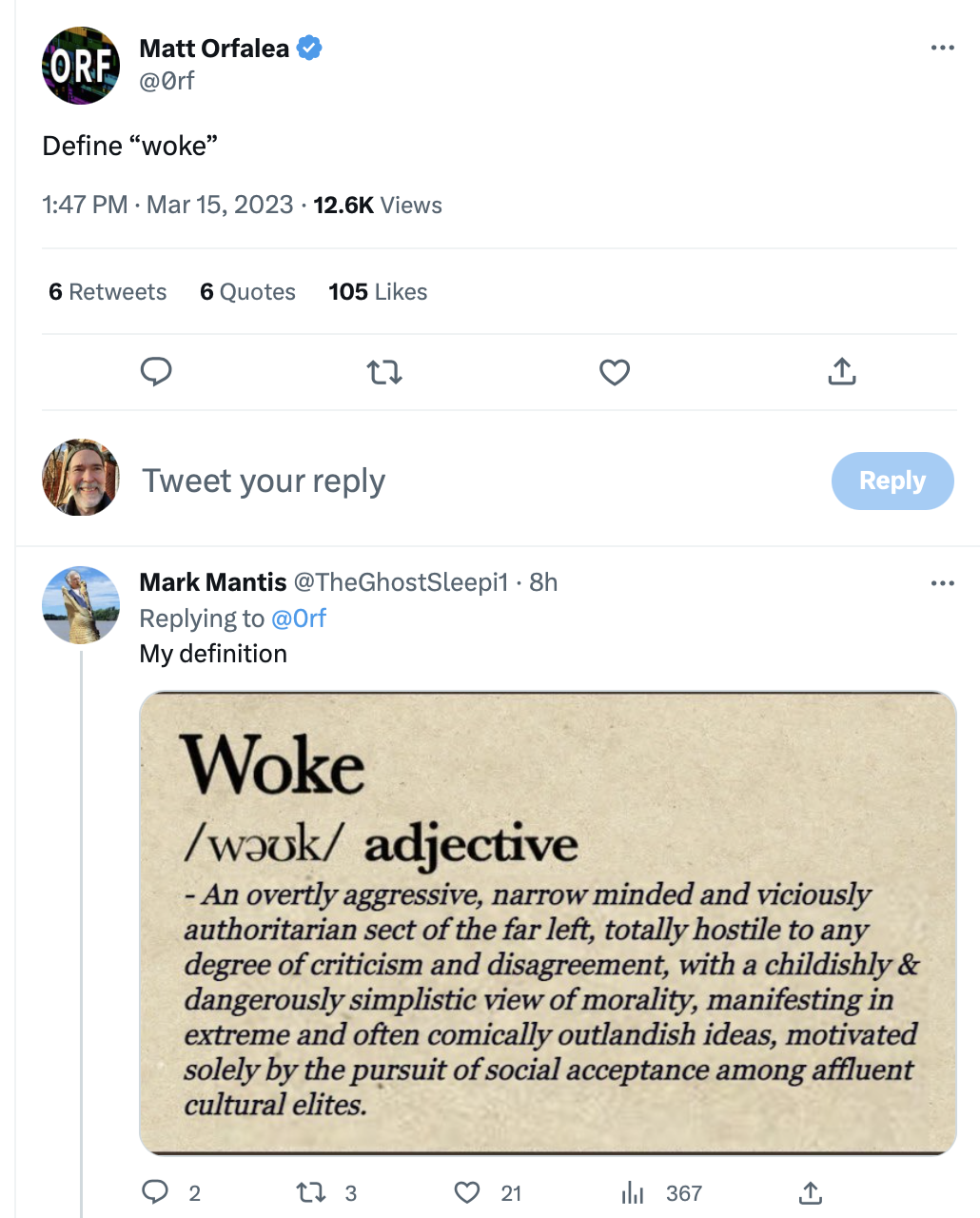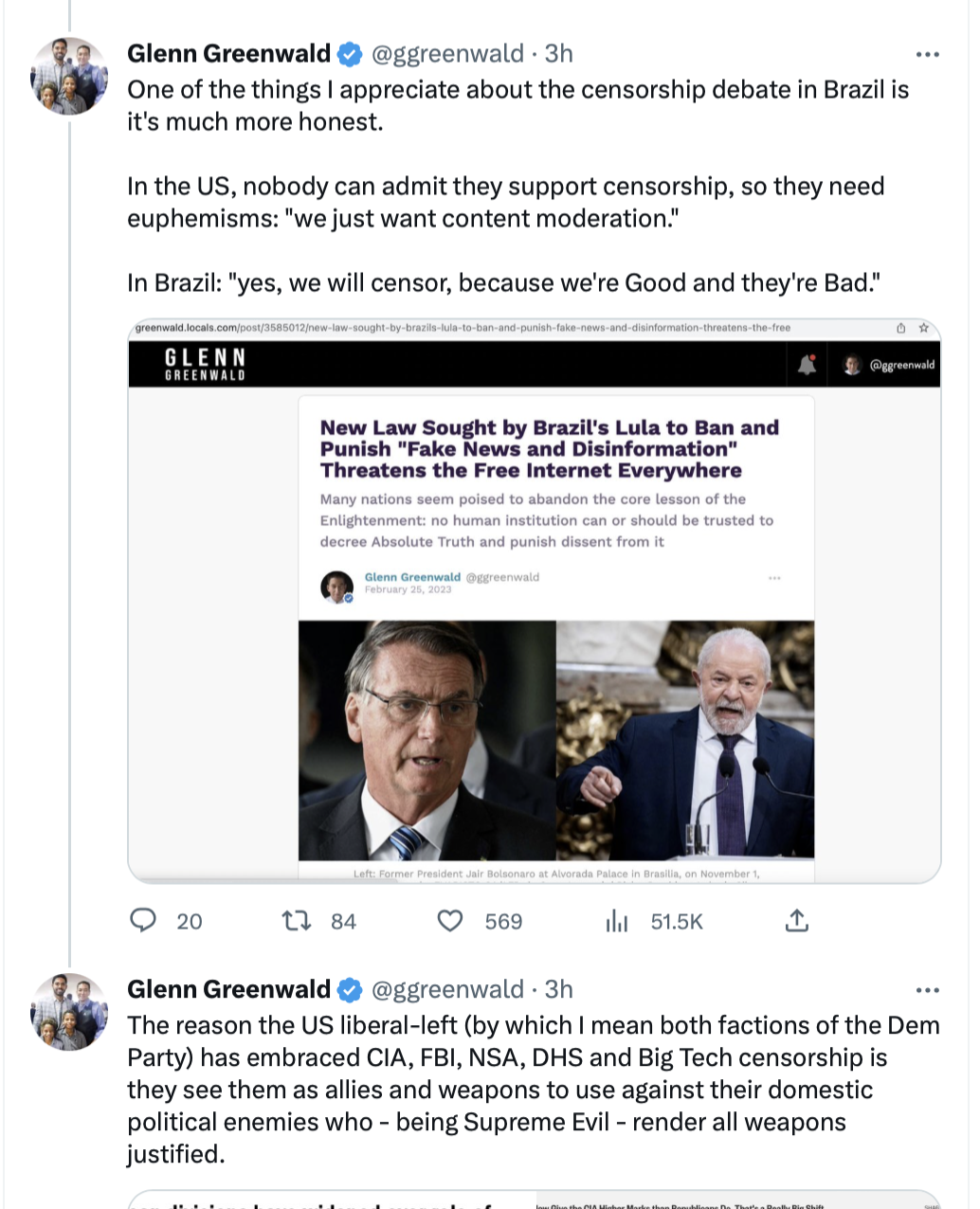What Does “Woke” Mean?
What does "Woke" mean? Here are two recent posts worth considering. First, Matt Orfalea posed the question on Twitter, which launched a worthy thread:
Here are a few of the offerings, among the many in the thread:Second, Freddie deBoer offered a detailed description of the meaning of "woke" in his article, "Of Course You Know What "Woke" Means: I'd rather use any other term at this point, but can we get real please? Here's the basic definition:Excessive, shallow and myopic focus on social justice
Woke people are special, they feel they are above constitutional principles like equality and free speech.
A toolbox full of identity-based attacks you can use to target people you already don't like
The conceit is that “woke” has even shaggier or vaguer boundaries than “liberal,” “fascist,” “conservative,” or “moderate.” And I just don’t think that’s true.DeBoer then offered a list of attributes:“Woke” or “wokeness” refers to a school of social and cultural liberalism that has become the dominant discourse in left-of-center spaces in American intellectual life. It reflects trends and fashions that emerged over time from left activist and academic spaces and became mainstream, indeed hegemonic, among American progressives in the 2010s. “Wokeness” centers “the personal is political” at the heart of all politics and treats political action as inherently a matter of personal moral hygiene - woke isn’t something you do, it’s something you are. Correspondingly all of politics can be decomposed down to the right thoughts and right utterances of enlightened people. Persuasion and compromise are contrary to this vision of moral hygiene and thus are deprecated. Correct thoughts are enforced through a system of mutual surveillance, one which takes advantage of the affordances of internet technology to surveil and then punish. Since politics is not a matter of arriving at the least-bad alternative through an adversarial process but rather a matter of understanding and inhabiting an elevated moral station, there are no crises of conscience or necessary evils.
Academic - the terminology of woke politics is an academic terminology, which is unsurprising given its origins in humanities departments of elite universities...Immaterial - woke politics are overwhelmingly concerned with the linguistic, the symbolic, and the emotional to the detriment of the material, the economic, and the real...
Structural in analysis, individual in action - the woke perspective is one that tends to see the world’s problems as structural in nature rather than the product of individual actors or actions...
Emotionalist - “emotionalist” rather than emotional, meaning not necessarily inappropriately emotional but concerned fundamentally with emotions as the currency of politics...
Fatalistic - woke politics tend towards extreme fatalism regarding solutions and the possibility of gradual positive political change...
Insistent that all political questions are easy - woke people speak and act as though there are no hard political questions and no such thing as a moral dilemma...
Possessed of belief in the superior virtue of the oppressed - what was assumed by Bertrand Russel to be obviously misguided is now assumed to be true without evaluation: virtue is not just common among the oppressed, virtue is a function of oppression...
Enabling people who aren’t Black or Southern to say “y’all” - this one is unforgivable...
I could go on. And some will disagree with this or that...
This is an excellent read and I would urge those interested to read Freddie's entire article.



